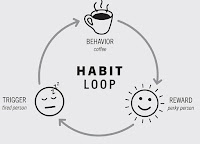DEMOLISHING THE NUTRITION & EXERCISE MYTHS
In the vast realm of fitness and health, numerous myths permeate our understanding of nutrition and exercise. At some point, many of us have fallen prey to these misconceptions. It is time to debunk some of these prevalent myths and shed light on the truth.
NUTRITION
MYTHS:
1. YOU HAVE TO RESTRICT
CERTAIN FOOD GROUPS IF YOU WANT TO BE HEALTHY:
Health is not about eliminating entire food groups. People have different
lifestyles and energy needs, so there is no one single answer on whether
carbohydrates are good or fats are bad. Tailoring your diet to individual needs
and focusing on overall nutrition rather than just calorie counts is essential.
A well-balanced diet, rich in essential fats and micronutrients,
is more beneficial than arbitrary restrictions.
2. VEGETARIANS CANNOT
BUILD MUSCLE:
You do not have to eat meat to build muscle; you just need to plan
your diet to make sure you get enough of the right protein sources. The
recommendations for building muscle are the same whether the protein comes from
veg or non-veg sources. The key is to eat a variety of plant sources like
beans, lentils and other varieties spread over the whole day, to cover the essential
amino acids.
3. I CAN EAT JUST LIKE HOW MY PARENTS
ATE:
Probably not – our grandparents ate three full meals a day with more emphasis
on carbs and very little meat and vegetables.
They needed a significant amount of calories, as they had to do hard labor.
The focus has now shifted from calories to nutrition – we need nutrient dense meals and smaller portion sizes.
The quality of the food has also changed – grains are not as rich in nutrients now as it was then and the soil, climate and our lifestyle has changed – so it makes sense that our eating habits also have to change.
4. WE ARE YOUNG – SO WE
CAN EAT ANYTHING:
Dispelling the myth that youth excuses poor eating habits; the foundation years
play a crucial role in establishing healthy patterns. Right from the time, we
are in our mother’s womb; healthy food choices play an
important role in creating healthy bodies and preventing diseases. Lifestyle
diseases are emerging at younger ages, emphasizing the need for nutritious
choices from the beginning. The point is that youth is no excuse for eating
poorly. Let us kick this myth out.
5. WE CAN LOSE WEIGHT BY SKIPPING
MEALS OR FASTING:
While skipping meals
might reduce calorie intake, it can compromise diet quality and lead to
fluctuating blood sugars and energy levels. Furthermore, prolonged meal
skipping can slow down metabolism, counterproductive for weight management.
EXERCISE MYTHS:
1. STRENGTH TRAINING IS ONLY FOR BODY
BUILDERS:
Contrary to common belief, strength training offers more than just muscle bulk for bodybuilders. It enhances fat burning, builds lean muscle, and aids in maintaining muscle mass as you age. Weightlifting is a gateway to strength for everyone, not exclusive to bodybuilders.
2. YOU CAN TARGET FAT LOSS / INCH
LOSS:
Spot reduction is a myth. Targeted exercises will not dictate where your body sheds fat. While
specific exercises can define areas, overall weight loss is crucial for visible
changes. Consistent, long-term exercise brings about the desired
transformations.
3. EXERCISE CAN COMPENSATE FOR A BAD DIET:
A flawed notion asserts that exercise alone can offset a poor diet. However, the truth is that a bad diet not only hinders weight loss but also deprives the body of essential nutrients. Correcting both diet and exercise habits is vital for optimal health.
People under estimate their calorie intake, while over estimating how many calories they can burn.4. SUPPLEMENTS ARE needed IF YOU ARE WORKING OUT:
While supplements are widely used, they should not replace a balanced diet. They may fill nutritional gaps temporarily but are not a substitute for wholesome food. The use of supplements does not compensate for a poor diet.5. WOMEN NEED DIFFERENT EXERCISES THAN MEN:
Discarding the notion of gender-specific workouts, both men and women can
engage in similar exercises. The difference lies in adjusting variables such as
sets, reps, intensity, and volume, not in the type of exercise itself.







Comments
Post a Comment